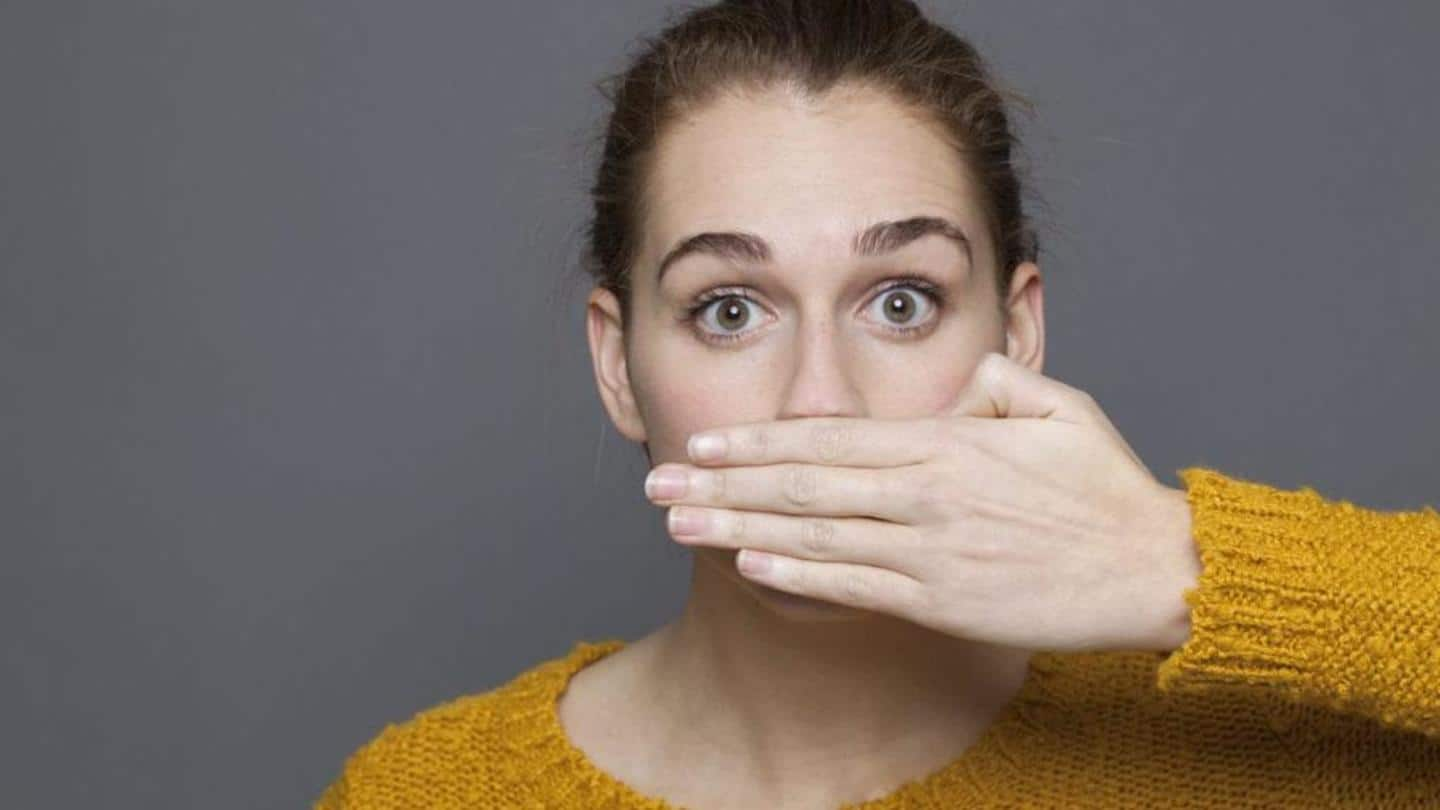
#HealthBytes: Have bad breath? These tips can help
What's the story
Bad breath is a rather common problem caused by a number of factors.
Also known as Halitosis, bad breath typically originates when bacteria grow on bits of food stuck in your teeth, which release foul-smelling sulfur compounds.
Other possible causes include infections, poor oral hygiene, diabetes complications, and renal failure.
But worry not! Some simple lifestyle changes can easily fix this issue.
Hygiene
First and foremost step: Maintain good dental hygiene
The first step for a good dental hygiene is to brush and floss regularly.
Apart from trapped food, the sticky build-up on your teeth called plaque also collects bacteria that cause bad breath.
Brush your teeth at least two times each day, and floss at least once.
Don't overdo things, though. Brushing too hard can wear down your teeth, making them vulnerable to decay.
Hydrate
Stay hydrated, aim for minimum 8 glasses of water daily
Dry mouth often causes bad breath because saliva plays a very important role in keeping your mouth clean.
Without it, bacteria thrive. This is why breath is typically worse in the morning.
Prevent the dryness by staying hydrated. Drinking water, not caffeinated or sugary drinks, throughout the day will help encourage saliva production.
Aim for at least eight glasses of water per day.
Tongue
Brushing your tongue is must; use your brush or scraper
Cleaning your tongue can effectively decrease Halitosis-causing compounds.
These compounds form on your tongue when bacteria and amino acids combine, emitting an unpleasant smell.
People who have a coated tongue from a significant overgrowth of bacteria may benefit from using a toothbrush that has a built-in tongue cleaner.
If your brush can't reach the back of your tongue, try a tongue scraper.
Mouth rinse
Consider using a mouth rinse; it suppresses bacteria growth
Keep in mind that mouth rinse alone is not an effective remedy unless used in addition to regular brushing and flossing.
Other than using store-bought mouth rinse, you can try a mix of water and a few drops of peppermint oil.
Rinsing your mouth with black or green tea can also help, since they suppress the growth of bacteria that cause mouth odor.
Diet
Diet: The foods to avoid and the ones that help
Foods like raw onion or garlic, when ingested and excreted by the lungs, cause Halitosis, so minimize their intake.
Avoiding acidic foods or high-fructose foods cuts down on bad breath too, since acids and sugars increase production of odor-causing bacteria.
Include whole grains, dark green and orange vegetables, fruits and protein-rich food in your diet.
They can curb intestinal upset and increase saliva production.